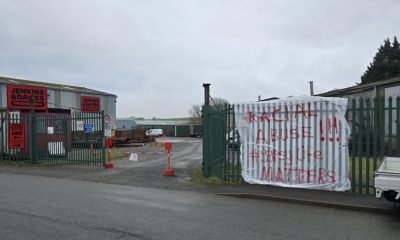Farming
Farming unions back EU customs deal
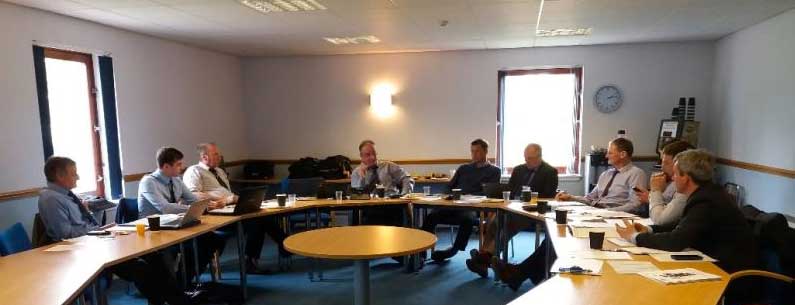
LIVESTOCK representatives from farming unions in all parts of the UK attended a meeting in Edinburgh, hosted by NFU Scotland. Top of the agenda for the representatives was the on-going uncertainty over the UK Governments policy for post-Brexit trade.
Farmer representatives from NFU Cymru, NFU, NFU Scotland and the Ulster Farmers Union (UFU) were clear that the UK Government must adopt a trade policy which prioritises tariff free, frictionless access to the European marketplace.
At the meeting, the four organisations agreed that there were concerning media reports over the possibility of the UK market being opened up to low standard imports from outside of Europe, should the Government not recognise the sensitive nature of beef and lamb.
Following the meeting, NFU Cymru Livestock Board Chairman Wyn Evans said: “We fundamentally need to hear the UK Government recognise and take action to protect lamb and beef production in developing its post-Brexit trade policy. Stability is key, and the trading agreement agreed with Europe is fundamental to achieving livestock prices that will result in profitable businesses that can invest and face the future with confidence. A customs agreement would achieve that certainty, particularly important for our lamb sector which is so dependent on the European market.”
NFU Scotland Livestock Committee Chairman Charlie Adam said: “From today’s meeting it is clear that any future trade with countries outside of Europe must be negotiated on the basis that all imported produce must meet UK and EU standards of production, traceability and environmental protection, it is therefore essential that the UK Government recognise the sensitive nature of beef and lamb. Additionally, for our future trade with the EU, the UK Government must adopt an approach which avoids any barriers to trade in to the European market.”
NFU Livestock Board Chairman Richard Findlay said: “It’s vital at this stage in the Brexit process that the UK Government adopts a form of customs arrangement that allows our beef and lamb to be exported to established markets in continental Europe. If this isn’t prioritised then there’s likely to be an economic impact, damaging livestock producers across the United Kingdom.”
UFU Deputy President David Brown said: “Efforts must also be maintained to secure new markets outside of Europe which can help to address carcase balance in the livestock sector. There are global opportunities to market high quality red meat produced from farms in the UK. It is important that these are fully capitalised upon to boost returns to farmers and add value to the industry.”
Farming
Natural Resources Wales urges farmers to follow safe slurry spreading rules

NRW is reminding farmers across Wales to take key steps to prevent pollution as the organic manure spreading season re-opens.
During the autumn and winter “closed periods”, restrictions were in place to stop slurry and other high-nitrogen manures being spread, helping reduce the risk of agricultural pollution.
Grassland spreading can resume from Thursday (Jan 16), with spreading on tillage land re-opening on Friday (Jan 31). However, NRW said a number of controls under the Control of Agricultural Pollution Regulations (CoAPR) will remain in force until the end of February.
Those restrictions include limits on application rates — no more than 30m³ of slurry per hectare, or eight tonnes of poultry manure, in a single application — with at least three weeks required between applications.
Before spreading organic manure, producers must also carry out field inspections to assess weather and soil conditions, slope, ground cover and proximity to watercourses, to help reduce the risk of runoff.
Farm businesses are expected to plan and record all applications in their Nitrogen Management Plan to ensure nutrients match soil and crop need and remain within nitrogen limits.
Spreading is prohibited on waterlogged, flooded, snow-covered or frozen ground — including soil that has been frozen for more than 12 hours in the previous 24 hours.
NRW said its teams will continue to support farmers while monitoring compliance.
Simon Griffiths, team leader of NRW’s Agricultural Pollution Inspection Team, said: “As the closed periods come to an end, we want to remind farmers, tenants, landlords and contractors of the restrictions which remain in place until the end of February.
“This means anyone considering spreading organic manure needs to ensure the conditions are suitable before work starts.
“NRW is committed to protecting the environment and any instances of pollution will be investigated and appropriate enforcement action taken.”
NRW is urging farmers and members of the public to report pollution incidents immediately via its online “report it” form or by calling 0300 065 3000.
Business
Redevelopment scheme at Castle Villa farm to be considered
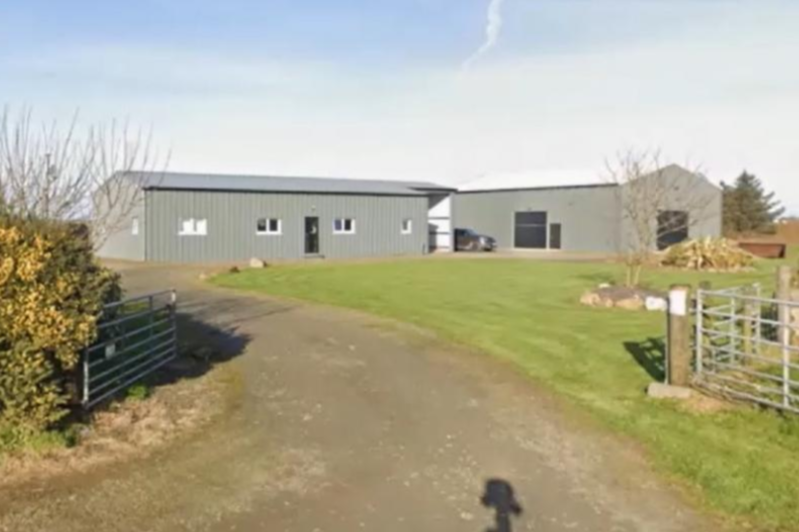
A PREVIOUSLY refused call for the relocation of a Pembrokeshire farm diversification scheme which packages and distributes specialist medical equipment across Europe will be decided by full council after being backed a second time by councillors.
In an application recommended for refusal at the January meeting of Pembrokeshire County council’s planning committee, Mr Van Der Spoel sought permission for the relocation and expansion of an existing farm diversification business into an existing agricultural building at Castle Villa, Hayscastle.
It had previously been recommended for refusal at the December meeting, but members went against the officer recommendation with a ‘minded to’ approval, meaning it returned to the January meeting after a ‘cooling off’ period.
Back in July a similar application by Mr Van Der Spoel, through agent Harries Planning Design Management, was refused by planning officers.
A supporting statement for that application said the Dutch-born applicant, together with his wife and adult daughter ran the farm diversification business packing specialist medical insulated insulin supplies at their 135-acre sheep farm.
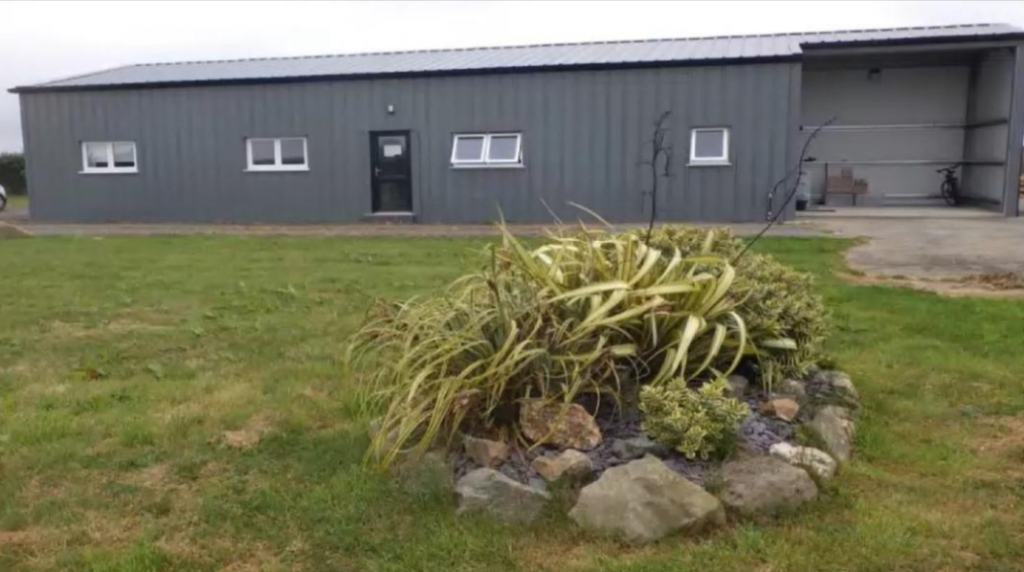
It added: “The business run from this site is FRIO ASTRID EURO Ltd, which has a franchise agreement with FRIO UK. This business has been run from Castle Villa since its incorporation in 1998. The business was initially run from the stable building on the farmyard at Castle Villa.
“The business set-up involves receiving stock from FRIO UK in Wolfscastle, packaging orders and distributing the stock to seven Western Europe countries.”
Wolfscastle-based FRIO produces the world’s first patented insulin cooling wallet which keeps insulin and other temperature-sensitive medicines cool and safe.
The scheme for the business, said to have outgrown its current site, was refused by county planners on grounds including a lack of “robust evidence” to prove it couldn’t be sited within a nearby settlement or an allocated employment site, such as Haverfordwest.
The latest application is recommended for refusal on similar grounds.
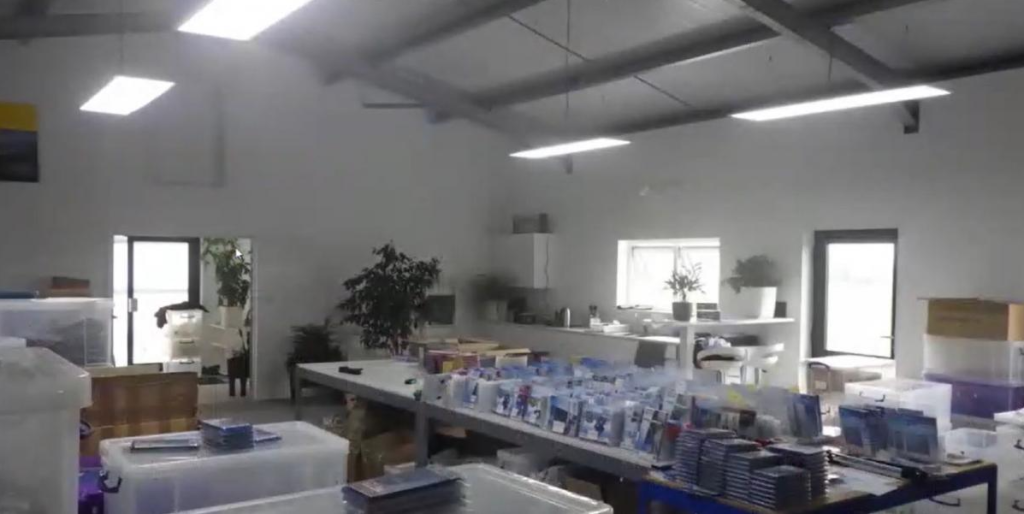
At the December meeting, members heard from agent Wyn Harries his client’s business, selling into Holland, Belgium, Switzerland, and Germany, accounted for some 20 per cent of FRIO UK’s trade on its own.
Mr Harries spoke again at the January meeting, saying previous articles in the Western Telegraph had shown a great deal of public support for the scheme, which had no local objections, adding of the previous ‘minded to’ approval: “Comments on the Western Telegraph [story] show the general populace would be like-minded with the councillors.”
Cllr Mark Carter said: “The only comments [locally] are why aren’t they allowed to continue? It’s almost an ideal business, they are there, it’s tidy, they are getting on with it, there’s never a complaint, it is very hard to see the business that is going on there; I’m absolutely fully supportive of this family.”
Officers had, if members were again supportive of the scheme, proposed a Section 106 legal agreement condition for approval, to ensure the FRIO ASTRID storage and distribution use remains in the same ownership and control as the existing farm business.
A call by Cllr John T Davies to again go against the officer recommendation of refusal was made, supported by 11 members, with one voting for refusal.
The application will now go before a future full council meeting for a final decision, expected to be the March meeting.
Business
Cresswell Quay potato farm allowed to keep holiday let

A CALL to allow a 600-acre Pembrokeshire potato farm to keep a holiday let erected “in innocence” without permission, which is said to be essential for supporting the business, has been approved.
In an application recommended for approval at the January 13 meeting of Pembrokeshire County council’s planning committee, Mr and Mrs I and F Elliot sought permission for the continued use of a mobile unit with a veranda as tourist accommodation at Cresswell Barn Farm, Cresswell Quay.
Cresswell Barn Farm supplies potatoes to Welsh supermarkets and the site has a certified campsite.
The application was before the committee rather than being delegated for an officer decision as it was recommended for approval, subject to the completion of a Section 106 legal agreement essentially keeping it for holiday use only, despite being in conflict with the development plan and was made by a close family member of an officer in the planning service.

An officer report accompanying the application said an enforcement investigation was started way back in 2012 following a claim a caravan was located at the site and was being used for residential purposes.
That was closed in 2023; a 2022 investigation taking place after an allegation a structure on-site was being used for holiday letting.
A 2023 certificate of lawfulness application was made to regularise the breach of planning, saying the unit had been used for residential purposes for more than a decade, but insufficient information was provided to allow it, the report said.
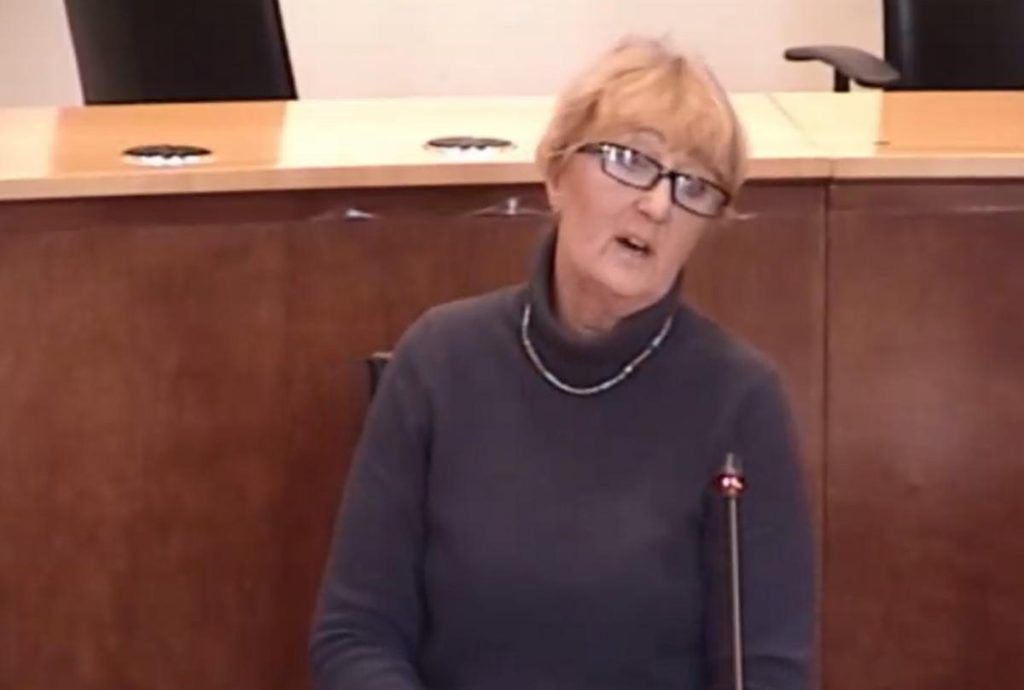
An appeal against this was later made to Planning and Environment Decisions Wales (PEDW) but was withdrawn by the applicant.
It said the enforcement action was ongoing, leading to the formal planning application.
Of the site itself, the report said: “The agent has confirmed that due to many variables, there is no typical year for the enterprise in terms of profitability and that the income generated from tourist related activities at the farm, is critical to the farming enterprise. The high-quality holiday unit therefore provides an additional income stream for the farming enterprise.”
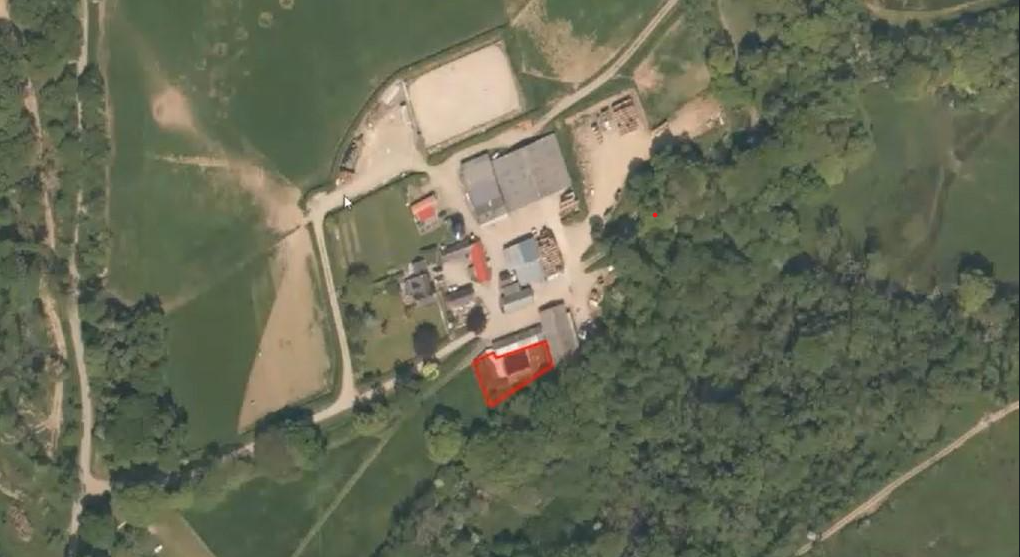
It added: “The holiday unit is located adjacent to buildings that make up the farm complex, with the accommodation offering guests an immersive rural experience that introduces them to aspects of the rural economy.
“Information submitted in support of this application confirms that the income from the holiday uses at the site is critical to supplementing the potato farming enterprise.”
Speaking at the meeting, Fiona Elliot said the holiday let was a small-scale part of the wider farm complex; the building having been on-site for some 15 years, the applicants more recently “in innocence” using it as a holiday let, which visitors have described as “five-star,” not realising they needed planning permission.
Following a call by Cllr Brian Hall to back the officer recommendation of conditional approval, members unanimously supported that.
-

 Crime5 days ago
Crime5 days agoMilford Haven man tells jury he feared being run over outside pub
-

 Crime6 days ago
Crime6 days agoMan jailed after samurai sword brandished in Pembroke Dock street brawl
-

 Education7 days ago
Education7 days agoPembrokeshire Learning Centre placed in special measures following Estyn inspection
-

 Crime5 days ago
Crime5 days agoDock woman sentenced after assault on neighbour during ‘psychotic episode’
-

 Crime7 days ago
Crime7 days agoMilford Haven man, 65, convicted of sexual assault on teenage girl
-
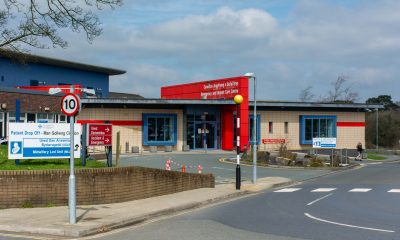
 Crime5 days ago
Crime5 days agoOn-duty paramedic racially abused at Withybush General Hospital
-

 Crime5 days ago
Crime5 days agoMilford Haven man denies sexual assault charge
-

 Crime7 days ago
Crime7 days agoMan accused of GBH, threats to kill and weapons offence remanded on bail
























